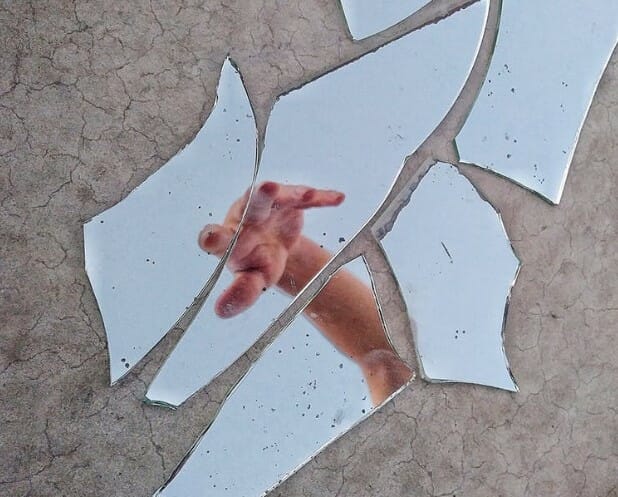What Glue Works Best on Glass?


Loctite Glass Glue is the product that should be used for the vast majority of glass repair projects. Loctite Glass Glue works wonderfully with many kinds of glass, including transparent, colored, tinted, and stained varieties. The cutting-edge application designs developed by Loctite allow for administrations that are uncomplicated, user-friendly, and spotless. This means that there will be no dirty residue left on the glass and no sticky fingers. The Loctite Glass Glue forms a strong bonding in a short amount of time without requiring clamps or any other supplementary instruments, and once it has dried, the resulting seal is transparent and colorless. Because it is both resistant to water and suitable to use in the washer, it may be used in the home without causing any concerns.
Can Super Glue Bond Glass Together?
Because of its high shear strength, crystal clear appearance, and water resistance, this cold-melt adhesive is an excellent choice for adhering to glass surfaces. You can find super glue in a wide range of density and viscosity, which allows it to be suited to fit a variety of usage.
For example, it can cure in just a few seconds on an assembly line, or it can set in a few minutes, which allows it to be manipulated throughout a sensitive implementation. Super glue could be found in a wide variety of thicknesses.
It’s possible for super glue to produce a joint that’s just as brittle as glass on its own. A bond that is rubberized or plasticized, like the one provided by our Rubber and Plastic Cyanoacrylate Super Glue, has the potential to be more versatile and long-lasting than its traditional counterpart. In spite of this, it will continue to function most effectively in tensile circumstances, in which components oppose stretching, as opposed to compressed circumstances, in which components defy being compressed.
When putting super glue on glass, super-strength needs must be avoided if possible. Because of this, super glue is an excellent choice for high visibility and fragile installations that won’t be regularly touched or required to be weight-bearing.
Are Silicone Adhesives Effective in Bonding Glass?
A silicone adhesive is a type of liquid glue that frequently has the appearance, texture, and behavior of a gel. It is available in many different varieties, such as elevated temperature, electric-grade, and multi-functional varieties. It is possible to apply silicone utilizing handy caulking equipment in addition to commercial-grade extrusion machines, heavy-duty adhesive guns, or glue guns designed for handicrafts.
In higher strength situations, like those that occur in the administration of rigid glass materials, a flexible glue, such as silicone, is an excellent choice. This is due to the fact that glass doesn’t really expand and contract like wood can. Silicone is an effective sealant, but due to its high level of adaptability and longer curing time in comparison to several other hot types of glue, it is best suited for applications involving glass and other tight applications.
Acetoxy silicones are characterized by their rapid curing and the production of acetic acid. They attach nicely to a wide variety of typical surfaces, which sets them apart from the vast majority of other silicones. However, some of the acetic acid emissions are biocompatible and can be employed in the production of medical equipment. These emissions may be toxic in certain circumstances and may cause damage to electronic components that are very delicate.
Are Glass Glues Waterproof?
There are glues that are water-resistant, and then there are adhesives that are completely waterproof. Since the adhesive bonds to the hydroxyl ions that are present in water, superglues are typically merely water-resistant. One of the things that can cause a superglue attachment to fail over time is extended contact to dampness.
Regardless of the type of epoxy, it is possible for epoxies to either be water-resistant. Employ an epoxy that is intended for use in extended absorption or abnormal conditions if the glass restoration will be subjected to any of these conditions. For glass restorations that need to be able to withstand being submerged in water, marine epoxy is a great option to consider.
For its long-lasting waterproofing qualities, silicone is a product that is frequently used as a sealing agent in baths, kitchens, as well as on roofing. This is because of its versatility. Silicone is generally going to be your best bet when it comes to repairing a break in an outdoor window, pane, or any other form of glass that is subjected to the weather.
What is the Usual Challenge in Bonding Glass with Adhesive?
Glass is a distinctive medium that, to both heated melting and non-heated melting adhesives, can present a number of issues when it comes to the bonding process. It’s not very often that you’ll be dealing with pile cracks once you’re dealing with glass. Rather, it’s more possible that you’re working on projects that require being able to withstand appropriate adjustments in the surrounding environment while also maintaining an undetectable and faultless bonding.
Thus, you need to give some careful consideration to the glue that you employ when bonding glass to glass or other materials. You would like it to be sturdy enough to form a bond that is impervious to water, flexible so much that it will not crack when subjected to stress from multiple directions, and transparent enough that it will not be simple to spot even many generations from now.
Are All Glass Glues Water-Resistant?
There are adhesives that are resistant to water, and then there are adhesives that are 100% waterproof. Since the adhesive bonds to the hydroxyl ions that are present in water, superglues are typically merely resistant to water. One of the things that can cause a superglue bonding to fail over time is persistent contact with dampness.
Considering the different types of epoxy, it is possible for epoxies to either be waterproof or resistant to water. Using an epoxy that is developed for use in extended absorption or humid conditions if the glass restoration will be subjected to any of these conditions. For glass restorations that need to be able to withstand being submerged in water, marine epoxy is a great option to consider.
Because of its lengthy waterproofing qualities, silicone is a product that is frequently used as a sealing agent in baths, kitchens, and roofing. That’s because of its versatility. Silicone is generally going to be a great thing when it comes to repairing a break in outdoor windows, windshields, or any other form of glass that is accessible to the weather.
Does Gorilla Clear Glue Stick Well to Glass?
Because of all the reasons listed above, the name “Gorilla Glue” is nearly synonymous with excellent superglue. This adhesive adheres strongly to a wide variety of materials, including glass, wood, foam, and ceramics. According to the manufacturer, the composition for Gorilla Glue produces an extremely strong adhesive that cures completely clear.
Gorilla Glue should be applied while it is at ambient temperature, and it should be allowed to cure in two hours tops; the whole cure should take place within a day. This particular adhesive is a cyanoacrylate, which means that it cannot be used for marine or elevated temp applications; however, it is safe for use in the majority of indoor and outdoor environments.
